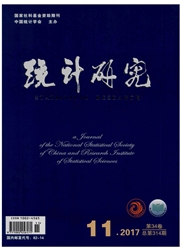

 中文摘要:
中文摘要:
本文从知识产权保护视角出发,阐述了服务贸易进口影响全要素生产率(TFP)增长的传导机制,运用中国和OECD国家的数据研究了服务贸易进口对TFP增长的影响,并且计算出TFP增长所需要的知识产权保护最适强度。结果表明:1劳动密集型、资本密集型服务贸易进口无助于促进全要素生产率增长,技术与知识密集型服务贸易进口则显著地促进了全要素生产率增长,即使考虑了知识产权保护因素,这一结果依然不变;2中国当前的知识产权保护实际强度低于国内R&D投入、技术与知识密集型服务贸易进口所需要的最适强度,但OECD国家已经超过了最适强度;3中国国内R&D投入所需要的最适强度低于技术与知识密集型服务贸易进口所需要的最适强度。
 英文摘要:
英文摘要:
This paper illustrates the transmission mechanisms of imports in services influencing growth of TFP, empirically researches the effect of imports in services on TFP with data for China and OECD, calculates the optimal strength of IPRs for TFP growth, and draws conclusions as follows. Firstly, labor-intensive and capital-intensive imports in services don' t contribute to TFP growth, but technology-intensive imports in services promote TFP growth significantly, and these results keep constant when IPRs are taken into consideration. Secondly, the currently actual strength of IPRs in China is lower than the optimal strength of IPRs needed by domestic R&D and technology-intensive imports in services, but it' s the opposite case in OECD. Thirdly, the optimal strength of IPRs needed by domestic R&D is lower than that needed by technology-intensive imports in services.
 同期刊论文项目
同期刊论文项目
 同项目期刊论文
同项目期刊论文
 期刊信息
期刊信息
